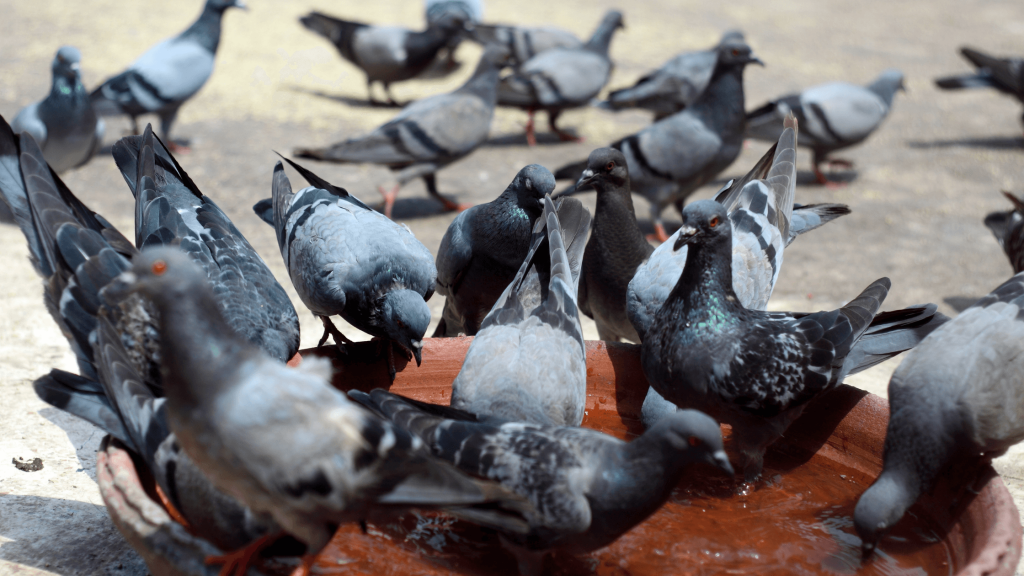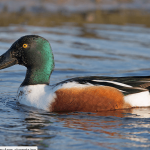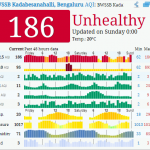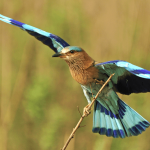
By Chandrima Mazumdar
Residents, unaware of the health hazards, are unwittingly feeding pigeons that frequent the Swabhimaana Park in Sector 3, HSR Layout. The other neighbourhoods in Bengaluru are no exception either. However, while feeding the birds is a noble deed, having them around in the neighbourhood is counter-productive. According to scientists, pigeon poop is the root cause of over 60 different types of diseases.
Fungal afflictions
One aware resident sent us a video saying, “Pigeons near the park will soon be a menace, if not already. I have seen a building owner staying across the Swabhimaana Park feeding sackful of grains inside the park every morning without fail.” He is right. Pigeon poop harbours several human pathogens, and is also home to several fungi. Histoplasmosis is one of the most common respiratory diseases caused by breathing in spores of a fungus found in pigeon droppings. The symptoms of histoplasmosis can include fever, chill, headache, and muscle ache. In severe cases, the symptoms may be similar to that of tuberculosis and can include bloody cough. People like farmers, pest control workers, construction workers, and even people who live near construction sites can be affected by this affliction.
Candidiasis is another fungus infection caused by pigeons. Similar to histoplasmosis, candidiasis also affects the skin, mouth, and respiratory tract. However, candidiasis also affects the intestines and the urogenital tract, especially the vagina causing itching, pain and discharge.
Cryptococcus is a fungus found in the soil contaminated by pigeon droppings. People can get infected if they breathe in the fungi mixed with dust or water droplets. While most may not get sick, vulnerable people with weak immunity can fall severely ill with chest infection and meningitis. If untreated, it could even be fatal.
Bacterial infections
Psittacosis, a flu-like illness can be caused by breathing in dust contaminated by bird droppings. Salmonella, an infection that causes diarrhoea, may also occur. Other than this, E. Coli, Campylobacteriosis, and Avian tuberculosis are some bacterial infections that can occur due to pigeons.
The heating and cooling components of a building can be greatly affected by bird fecal matter and feathers. Employees, inhabitants of the building and maintenance personnel can also be affected by them. It is important to pay attention to the areas where the heating, ventilation and air conditioning (HVAC) connects to the outdoor air. HVAC air intakes, rooftop heating and cooling units are perfect places where pigeons build their nests. One pair of these birds can generate up to 18 new pigeons every year, and they are extremely territorial.
The HVAC distributes the air through a building. In that case, the pathogens and germs breeding in the pigeon droppings, feathers, and nest can easily circulate through the venting system of the entire building and can cause up to 60 types of diseases.
Other than this, birds do not have a separate urinary bladder. They excrete uric acid along with faeces, which includes nitrogenous waste as birds are uricotelic. “One must be careful not to step on them”, said Dr KM Chandrashekar, assistant professor, Veterinary Microbiology, Veterinary College (Hassan). Dr Chandrashekhar, along with some other veterinary microbiologists have been running an awareness campaign telling people about the effects of pigeon droppings on humans. According to experienced general practitioner Oliver Rodrigues of Scorpion Clinic in Bellandur, pigeons are a disease-ridden species. “Most pathogens are spread through the droppings of the bird which dry up and then form a powder to infect the airways,” he says. “Feeding pigeons may not be bad for lungs, but as they tend to congregate in large numbers at feeding areas and leave droppings everywhere, that could essentially be a health hazard.”
Case Studies
A particularly large outbreak of histoplasmosis occurred in 2001 in Indiana, USA when 523 high school students became ill after their school’s courtyard containing bird droppings was tilled by a maintenance worker. In the late 1970s, the largest outbreak of histoplasmosis also occurred in the USA when 120,000 people fell sick when a building with bird droppings was demolished.
In Hyderabad, a noteworthy case occurred when the pulmonologist of Apollo Hospitals, Dr. Vijay Kumar Chennamchetty, diagnosed Hypersensitive Pneumonitis (HP) or Bird Fancier’s Lung, an inflammatory disease caused by bird droppings that are highly allergenic. As the symptoms are more or less similar, many doctors confuse this with atypical pneumonia. He found pigeon droppings and AC ducts to be a lethal combination in cities.
Though there are 150 known triggers to HP, the pigeon population is one of the main suspects in urban areas. Protective measures include sanitising the contaminated surfaces and avoiding exposure to the fungus, especially people with low immunity. Those who are exposed to pigeon droppings should wear N95 masks. Doctors recommend that pigeon-feeding be avoided. Other than the diseases, feeding pigeons in large numbers, especially on roads are known to cause accidents too. Animal experts even say that this is working adversely for the birds too as their hunting instincts are getting destroyed, and creating food security for other birds by helping the pigeons breed.



